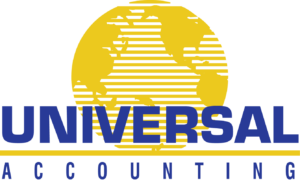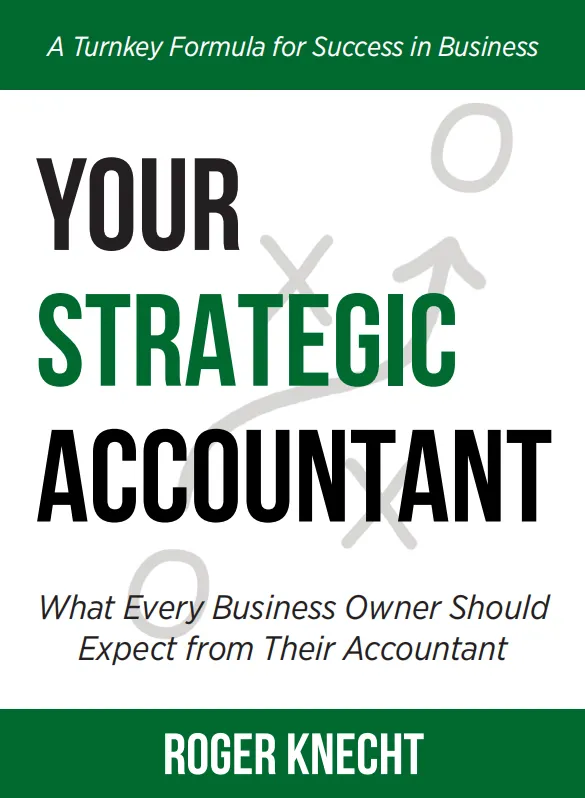In today’s rapidly evolving business landscape, understanding the nuances of Accounting vs Bookkeeping and understanding their unique roles in financial management is more critical than ever. These two pillars of financial management, though closely linked, play distinct roles in the success of any business. This comprehensive guide delves into the heart of accounting and bookkeeping, unraveling their intricacies and demonstrating their pivotal roles in efficient financial management.
Defining Accounting and Bookkeeping
In the intricate world of finance, accounting extends beyond recording transactions to encompass analyzing trends and interpreting financial data, essential for informed decision-making. Certified Public Accountants (CPAs) often play a key role in this process, ensuring accuracy and compliance, particularly during tax season. While bookkeepers lay the foundation by meticulously recording daily transactions, CPAs delve deeper, using this organized financial information to navigate complexities, optimize tax returns, and offer strategic financial insights. In essence, bookkeepers and accountants collaboratively contribute to the comprehensive financial landscape of a business.
Roles and Responsibilities in Accounting
In the intricate tapestry of finance, accountants act as linguists, translating the story of a company’s financial health through the meticulous upkeep of the general ledger. Certified Public Accountants (CPA), as specialized members of the accounting profession, go beyond routine tasks. Accountants must offer invaluable financial advice, utilizing their expertise in the accounting process to guide strategic decision-making, financial forecasting, and budgeting. As integral members of a business’s financial team, accounting professionals navigate a diverse array of accounting tasks to ensure accurate, comprehensive, and insightful financial reporting.
Today’s accountants use a variety of advanced techniques. From accrual accounting to forensic accounting, these methods allow businesses to gain deeper insights into their financial health, identify trends, and make predictions about future performance. Advanced accounting also plays a pivotal role in compliance, ensuring businesses adhere to financial regulations and standards.
Basic Principles of Bookkeeping
Bookkeeping is an art that requires precision and attention to detail. Recorded financial transactions in the bookkeeping process follow the principles of the double-entry system, a cornerstone of this precise art. These bookkeeping tasks, meticulously executed, form the foundation for accurate financial reporting, a key responsibility upheld by professionals, including those affiliated with the National Association of Certified Bookkeepers.
Good bookkeeping practices are indispensable for any business. They enable accurate tracking of expenses and revenues, help in managing cash flow, and are essential for preparing financial statements. Effective bookkeeping is often the unsung hero behind a business’s ability to make informed financial decisions.
Bookkeeping vs Accounting: Key Differences
- While bookkeeping is largely transactional, focusing on recording financial activities accurately, accounting is more interpretative, aimed at understanding the implications of these transactions.
- Accountants use the data compiled by bookkeepers to analyze financial trends, assess financial health, and guide business strategy.
- The key difference between bookkeepers and accountants lies in this interpretative aspect, with accountants applying generally accepted accounting principles to ensure compliance.
- Various types of accounting firms, ranging from public to private and forensic, engage in these interpretative roles to provide comprehensive financial insights and strategic guidance.
Bookkeeping and Accounting Software
The rise of digital technology has revolutionized accounting and bookkeeping. Software like QuickBooks, Xero, and Sage has automated many of the routine tasks, reducing errors, saving time, and allowing for more sophisticated financial analysis. These tools have transformed how financial data is collected, processed, and interpreted. Online bookkeeping, often endorsed by the American Institute of Professional Bookkeepers, is becoming increasingly prevalent, especially within public accounting firms. These technological advancements streamline the accounting cycle and, in conjunction with specialized bookkeeping software, efficiently record financial transactions, ultimately producing accurate and insightful financial reports
Educational Pathways for Aspiring Accountants and Bookkeepers
The journey to becoming a proficient accountant or bookkeeper often starts with formal education. Degrees in accounting, finance, or business administration lay the foundation for understanding the complexities of financial management.
In addition to formal education, developing proficiency as an accountant or bookkeeper requires mastering critical skills such as analytical thinking, attention to detail, and proficiency in accounting software—essential elements for managing and interpreting intricate financial records
Attaining the Professional Bookkeeper™ certification from Universal Accounting School not only showcases proficiency in daily accounting for small to mid-sized businesses but also reflects a dedication to delivering high-quality service. Whether honing specialized skills or advancing your career, this program aligns with industry demands for adept professionals in small-business bookkeeping and accounting, equipping you with enhanced skills for a successful career journey.
Securing certifications such as Professional Tax Preparer, CPA, or EA not only boosts credibility but also unlocks a spectrum of opportunities, broadening professional horizons.
Your business is an asset. You should know its value and understand how to maximize it.
Career Paths and Opportunities: Become an Accountant vs Bookkeeper
The career paths in accounting and bookkeeping are diverse and rewarding. For bookkeepers, progression might involve becoming a certified bookkeeper or specializing in a particular industry. Accountants can aspire to roles like Chief Financial Officer or specialize in fields like forensic accounting or tax consultancy. Continuous learning and adapting to technological advancements are key to career progression in these fields.
Becoming an accountant involves interpreting financial data, guiding strategic decisions, and often requires affiliation with professional bodies like the Association of Certified Public Accountants. Accountants contribute significantly to producing financial reports and analyses, and their annual salaries generally reflect the complexity and interpretative nature of their roles compared to bookkeepers.
Average Salary of a Bookkeeper and an Accountant
The average salary a bookkeeper may earn, depends on factors like experience and location, typically falling below that of accountants. Bookkeepers focus on recording financial transactions, while accountants work on tax planning and financial analysis, yet recorded in the bookkeeping process. The earning discrepancy between bookkeepers and accountants reflects the varied responsibilities and skill sets associated with each role within the broader financial landscape. See what you can expect to make using the Robert Half Salary Guide.
Small Business Focus: Tailoring Accounting and Bookkeeping
Custom Solutions for Small Businesses
Small businesses often face unique financial challenges, requiring tailored accounting and bookkeeping solutions. This section would focus on how small business owners can optimize their financial management practices, balancing the need for detailed accounting with the realities of limited resources.
Hire a Bookkeeper or Hire an Accountant?
When deciding between hiring a bookkeeper or an accountant, consider the scale and complexity of your financial needs. A bookkeeper is ideal for accurate transaction recording, while an accountant offers interpretative insights, strategic financial planning, and expertise in compliance. Assess your business requirements to determine the most fitting financial professional for your team.
Conclusion: Bookkeepers vs Accountants
In conclusion, understanding the distinctions between accounting and bookkeeping is crucial for effective financial management. While bookkeeping focuses on meticulous transaction recording, accounting involves interpretation, analysis, and strategic financial planning. Learn more what you can do to offer quality accounting services as a Strategic Accountant (free e-book).
FAQs
- What is the primary difference between accounting and bookkeeping?
Bookkeeping records transactions, while accounting interprets and analyzes financial data.
- How does the role of a bookkeeper differ from that of an accountant?
Bookkeepers focus on accurate transaction recording, while accountants provide interpretative insights and strategic financial planning.
- Can one person perform both accounting and bookkeeping tasks?
Yes, particularly in smaller businesses, individuals may handle both roles.
- What certifications enhance career prospects in accounting and bookkeeping?
Certifications like CPA and Professional Bookkeeper can significantly boost credibility in both fields.
- How has technology impacted the roles of accountants and bookkeepers?
Technology has automated routine tasks, allowing professionals to focus more on interpretation, analysis, and strategic financial planning.
Share this post: on Twitter on Facebook on Google+







